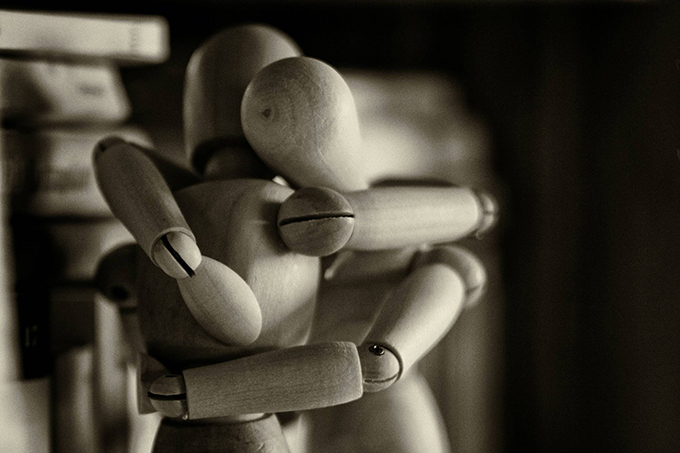Bereavement

Do you feel profound sadness?
Do you have feelings of emptiness, despair, yearning, or deep loneliness?
Do you cry a lot or feel emotionally unstable?
Do you feel angry or resentful?
Do you feel anxious, helpless or insecure?
Are you experiencing shock and disbelief?
How we can help…
At some point in our lives we all experience loss and bereavement and, when we do, this is often accompanied by grief and mourning. There are many different losses that we may face in life ranging from the death of a loved one or divorce and separation to the loss of a home or employment. These losses can have a profound effect on our mental health and wellbeing and we may be fearful of the changes that accompany these losses. Grief and loss impact people in many different ways.
If you are struggling to cope with any form of grief or loss, Talking Elephants can provide you with counselling and support to help you navigate these difficult times.
Bereavement Counselling – Adults
When we experience a loss, there is no right or wrong way to feel. Different people will react in many different ways and may feel a wide range of emotions. This is because, after a loss, we begin a process of healing and movement towards acceptance of the loss. We also begin to adjust to the subsequent changes that the loss brings to our lives. Elizabeth Kubler Ross suggested that there are five stages of grief that we pass through on the road to healing:
If you are struggling to cope with loss or grief we can help.
Five stages of grief
- Denial: This helps us to survive the immediate effects of a loss. When we initially experience a loss we can feel completely overwhelmed and like life no longer makes sense or has any meaning to it. You may start to deny the loss and feel numb. A state of shock often accompanies this because life as you once knew it has changed instantly and irrevocably. Denial helps us to pace our feelings of grief so that we are not totally overwhelmed. It is after this initial stage of denial that the healing process begins.
- Anger: Once you have overcome denial you may begin to feel angry. You may ask yourself ‘why me?’ and feel that life is not fair. During this stage you may lash out at friends and family. If you are religious you may start to question your faith in God. Anger is a necessary stage of grief and it is important that you feel the anger and go through it. Although it may feel as though the anger is never-ending it will eventually pass. The more that you allow yourself to truly feel the anger the sooner this will happen. These feelings of anger are a natural and necessary response to loss and it is not healthy to suppress them.
- Bargaining: This is a stage where we often experience a sense of false hope. When something bad happens we may find ourselves making a deal with God saying: ‘If you change this, I’ll change that’. For example, “If you heal my husband, I will be the best wife I can be”. You may believe that you can somehow avoid the grief or change it through a form of negotiation. Guilt often accompanies bargaining and you may find yourself asking “what if?” questions. For example, “what if I had made him go to the doctors earlier cancer could have been found and he would have survived”.
- Depression: This is the form of grief that is most commonly accepted by people. The depression you experience after a loss represents the emptiness you are feeling because the person is gone or the situation you were once in is now over. During this stage of grief, you may feel numb, lack motivation for everyday life and withdraw from others around you. The world around you may feel overwhelming and you may experience a deep-seated sense of hopelessness. Some people may experience suicidal thoughts.
- Acceptance: In this final stage of grief you reach a point where you can know the loss has occurred but feel that you will be okay. When you reach this stage your emotions may begin to stabilize. It doesn’t mean that you won’t have another day where you feel uncontrollably sad but the good days tend to outnumber the bad ones by this point. You will find that the fog of depression lifts and you are able to spend time with friends and family again and re-enter the world.
Bereavement Counselling – Young People
Very few young people go through childhood or adolescence unaffected by loss. The losses a child experiences may stay with them into adulthood if left unaddressed and, over the course of a life span, these losses may contribute to more complex mental health issues. Some examples of childhood loss include:
- Death of a family member, friend or pet.
- Parental divorce or separation.
- Being lost or separated from family.
- The loss of their home or belongings.
It is often assumed that bereavement doesn’t affect young people in the same way as adults as children do not understand the full implications of loss. However, this assumption is untrue and harmful. It is important that we acknowledge any loss a child experiences and provide them with a space to grieve and process it. Grief is a very personal experience which varies from child to child. Not all children will respond in the same way to grief and you should not assume that all children will experience the same emotions. Unlike adults, a child’s grief can have a big impact on their development and can undermine their sense of competency and diminish feelings of safety and resilience. As children and young people do not have the same emotional capacity as adults, they tend to revisit their loss at different stages of their development.
